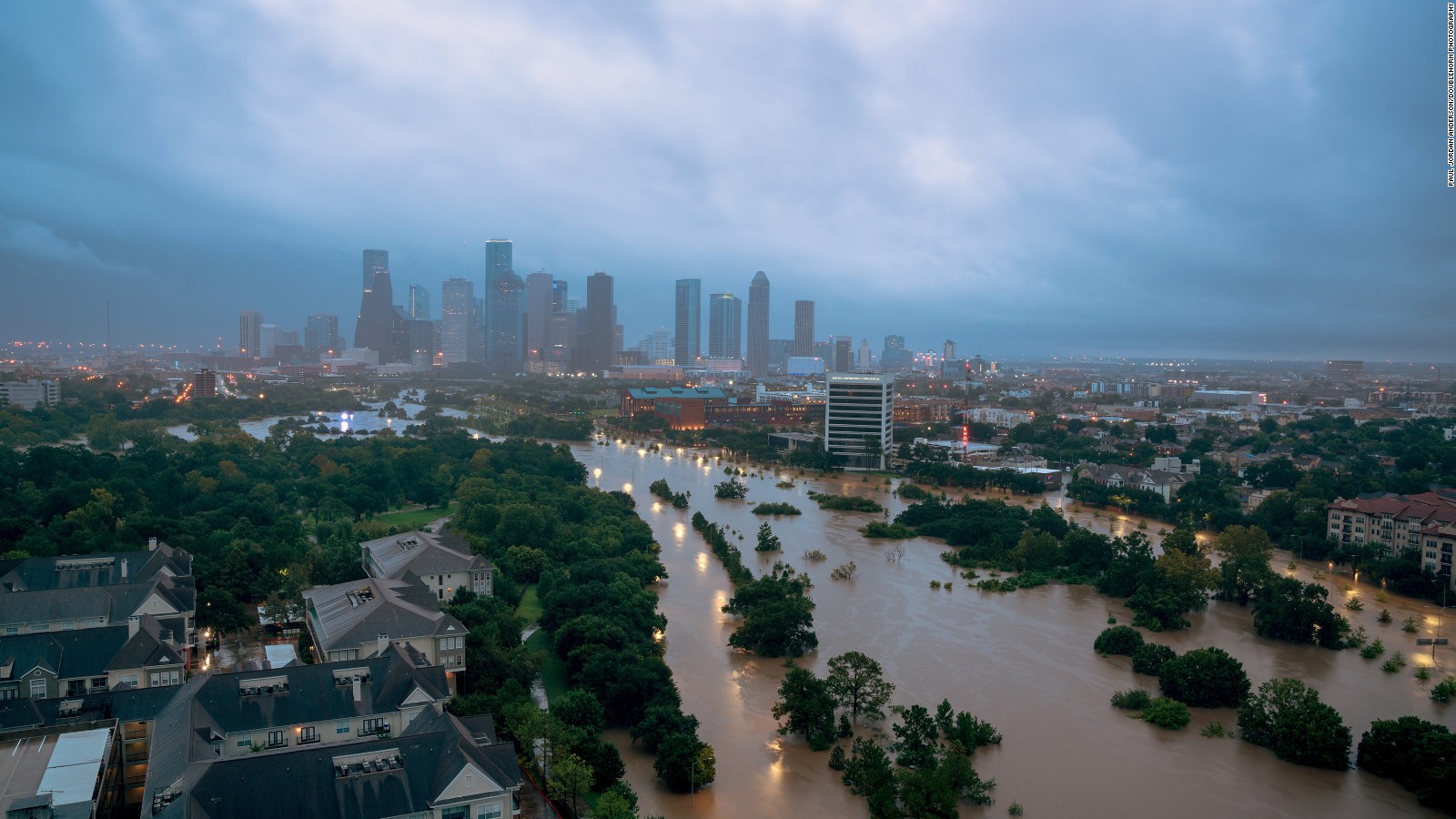The study, published this week in the journal Science, showed that the world's oceans have got much warmer since the 1960s. Its authors said 2018 would be the warmest year on record for oceans.
But what happens when the oceans get warmer, and what does it mean for us?
Rising sea levels
When water heats up, it takes up more space. That means as oceans warm, sea levels rise. The study says this effect alone could make sea levels could rise by about 30cm (12 inches) by the end of the century.
"That doesn't sound like much, but there are many large cities around the world, much built on reclaimed land, that are not more than 30cm above sea level," says Stephen Simpson, associate professor in marine biology and global change at the University of Exeter, in the UK. "Millions and millions of people would be displaced."
But on top of that, warming oceans are causing polar ice sheets to melt faster, which will make sea levels rise even more.
The combination melting ice and expanding water could cause sea levels to rise by up to a meter by 2100. Hundreds of millions of people could be forced to leave their homes.
Rising sea levels are already causing more flooding in the US, and within the next 30 years, more than 300,000 US homes could be flooded every other week, according to </a>research from the Union of Concerned Scientists.
Extreme weather gets more extreme
Warmer oceans make tropical storms more intense and longer lasting.
Hurricane Harvey, which brought more than 1.5 meters (60 inches) of rain over four days in late August 2017, was made worse by unusually warm ocean temperatures.
For coastal areas already struggling with rising seas, those storms will bring even more flooding.
Warming temperatures also mean changing rainfall patterns. "We'll probably be seeing redistributing of water vapor in the atmosphere," says Brad Linsley, research professor Columbia University's Lamont-Doherty Earth Observatory. "Higher temperatures lead to more evaporation, so parts of the earth will get wetter and parts will get drier."
Ocean life under threat
Coral reefs are especially sensitive to warmer seas. Between 2016 and 2017, half the corals at the Great Barrier Reef were killed by two ocean heat waves.
Almost three-quarters of the world's coral reefs were affected by those heat waves and experts say warmer oceans mean these sorts of die offs will become much more common.
Another problem for sea life is that increased flooding causes more nutrients to be washed into the sea. This leads to plankton blooms and ultimately causes some parts of the sea to be starved of oxygen, making it hard for fish to live there.
Warm oceans hold less oxygen, which makes the problem worse. Simpson says some areas of Japan, Taiwan and the Baltic Sea are seeing dramatic die-offs of fish because of low oxygen.
Food security
Fish species respond to warmer oceans by migrating to cooler areas, says Simpson. But the waters in some parts of the world are getting too warm for any fish -- and that could lead to food shortages in those areas.
"There is a severe food security risk in the tropics," says Simpson. "No species are already activated to temperatures warmer than the tropics, so you could see a real crash in food fish populations. And these are places where coastal nations often have no other protein in the diet other than the fish from coral reefs."
Melting sea ice
Warmer seas are causing sea ice to melt. Sea ice floats on the ocean surface, so when it melts it doesn't affect sea levels. But it means there's less sea ice to reflect heat from the sun, which means the planet gets warmer.
It's bad news for animals that depend on sea ice to survive -- including polar bears. But it's also a problem for some Arctic communities.
"The Inuit living in Canada, for example, is a culture based on sea ice," says Arnaud Czaja, a reader in physical oceanography at Imperial College London. "They get their food by hunting seals and polar bears from sea ice, or fishing from sea ice. When the sea ice is disappearing that's not possible, so the whole culture is being lost."
Is there any good news?
While scientists say the new paper shows an alarming rate of increase in ocean temperatures, Simpson sees one chink of light.
"The only positive is we now have a better understanding of the relationship between human emissions and ocean warming," he says. "That gives stronger evidence as to why controlling emissions is so important for our generation -- and the next."





No comments:
Post a Comment